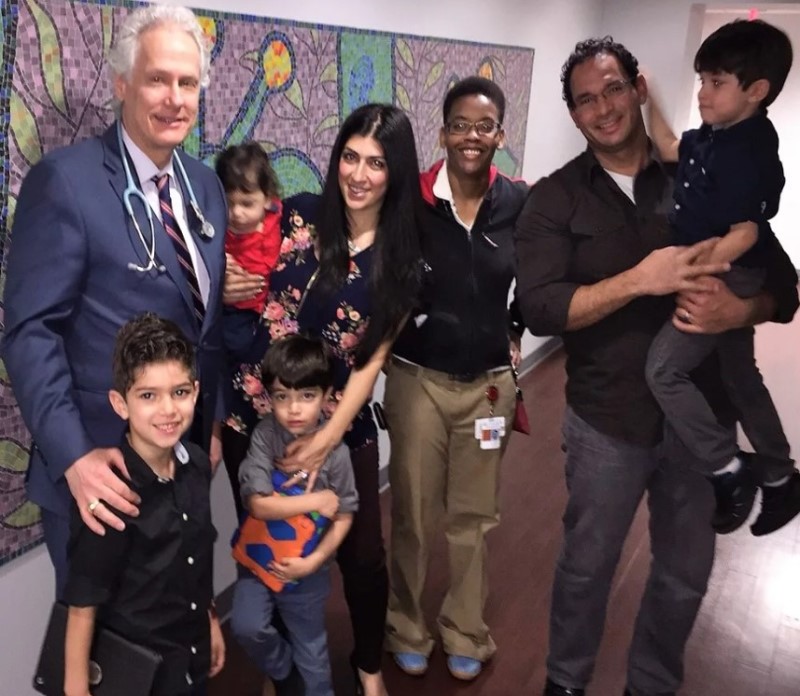Clinical Research

Division Director J. Marc Rhoads, MD, (left) pictured with Research Coordinator Nicole Fatheree (center) and the first family involved in the autism-probiotic study.
The Pediatric Gastroenterology, Hepatology, & Nutrition Division’s clinical research has focused on topics including infant colic, autism spectrum disorder, central line-associated sepsis, and biomarkers in congenital heart disease. Examples of recent publications include a study showing infants with colic have an abnormal microbiota and increased fecal calprotectin (FC), a neutrophil product signifying intestinal inflammation (19628216). Another example is a study that found in children with eosinophilic esophagitis, plasma levels of amino acids, peripheral eosinophil count, and polyamine levels provide a useful predictive marker for active disease (36574003). Our group discovered that in children with intestinal failure, central line bicarbonate locks provided safe and effective protection against infection (24564346). Another trial demonstrated that in pediatric colonoscopy, carbon dioxide insufflation helped to control post-colonoscopy pain (29210902).
Our team is now completing a double-blind randomized “roadmap to discovery study” of 100 children with autism spectrum disorder to determine the impact of a probiotic Bifidobacterium animalis BB-12 with Lactobacillus rhamnosus GG on behavior and gastrointestinal symptoms. Researchers will also look at fecal microbiota and metabolites, serum zonulin (a marker of GI permeability), and fecal calprotectin levels in these children with autism.
Other areas of active clinical research in the division include determining the effect of:
- a blenderized formula on gastrointestinal symptoms and nutrition in high-risk children with tube feeding
- different lipid emulsions in children with pediatric intestinal failure
- Saccharosidase (Sucraid) for children with abdominal pain and low sucrase-isomaltase levels
This division is a participating center in the Improve Care Now network for children with inflammatory bowel disease.